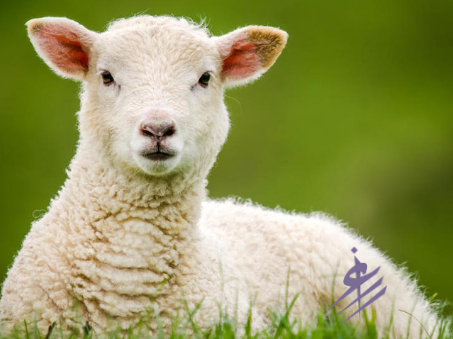Eid al-Adha is approaching, which is a time when Muslims get closer to Allah by offering sacrifices. Many wonders about the rules and conditions of the sacrifice, in this article we will explore these rules and conditions stay tuned to learn more.
Rules and Conditions of Sacrifice
There are many rules and conditions that must be met for the sacrificial animal.
Sacrifice is one of the most important Islamic rituals that Allah has ordered his servants who are able to perform it. Allah says in Quran: “So pray to your Lord and sacrifice to Him alone”.
It was narrated from Abu Hurairah that the Messenger of Allah, sacrificed two fat, horned rams that were white with black markings. He slaughtered one of them and said, “In the name of Allah, and Allah is the Greatest. O Allah, this is from You and for You.” Then he slaughtered the other one and said, “In the name of Allah, and Allah is the Greatest. O Allah, this is from Muhammad and his family and for Muhammad and his family, from the Ummah of Muhammad, for the Ummah of Muhammad and for those who bear witness to the Oneness of Allah and bear witness to my Prophethood.”
Aisha (may Allah be pleased with her) reported that the Prophet (peace and blessing of Allah be upon him) said, “There is no deed that is done by a son of Adam on the Day of Sacrifice that is more pleasing to Allah than the shedding of blood. It will come on the Day of Resurrection with its horns, hair and hooves. Indeed, the blood reaches Allah before it falls to the ground, so purify yourselves of it.” (Sunan bin Majah)
Ruling of Sacrifice
Is a confirmed Sunnah of the Prophet (peace and blessing of Allah be upon him).
It is performed by those who are financially capable among the Muslims and the meat is distributed to the poor and needy as well as to relatives and friends.
Bin Abbas reported that the Prophet (peace and blessing of Allah be upon him) said, “Three things are written down for you: voluntary prayer, the sacrifice and the two rak’ahs of Fajr prayer.” (Sunan bin Majah)
In another hadith, the sacrifice is linked to the intention of the person performing it.
Um Salama reported that the Messenger of Allah said, “When the ten days of Dhul-Hijjah begin and one of you intends to offer a sacrifice, let him refrain from cutting his hair and nails until he has offered his sacrifice.” (Muslim)
Therefore, the sacrifice is a confirmed Sunnah of the Prophet and should be performed by those who are financially capable.
When performing the sacrifice and to refrain from cutting hair and nails until after the sacrifice has been made.
The meat of the sacrifice should be distributed to those in need, as well as to relatives and friends.
You can also read about: The Virtues of the Dhul-Hijjah’s ten days.
Etiquettes of Sacrifice

There are several etiquettes or manners that should be followed by the person performing the sacrifice:
One of them is to refrain from cutting hair or nails once the intention to sacrifice has been made, starting from the 10th of Dhul-Hijjah.
This is based on the saying of the Prophet: “If anyone of you intends to offer an animal for sacrifice, then he should refrain from cutting his hair and nails from the beginning of Dhul-Hijjah till the animal has been sacrificed.”
It is also permissible for the person performing the sacrifice to slaughter one sheep or goat for themselves and their family, as the Prophet did.
Additionally, seven individuals can share in the sacrifice of one cow or camel, whether they are from the same household or not.
Jabir reported: “We sacrificed at Al-Hudaybiyah with the Prophet a camel and a cow on behalf of seven persons.”
Conditions of the Sacrificer and the Sacrificial Animal
- The sacrifier must be a mature Muslim, as Islam is the most important condition for the acceptance of the sacrifice.
- They must also have enough wealth to perform the sacrifice without affecting their daily needs.
- Prophet said: can afford to offer asacrifice but does’t do so, let him not come near our prayer place.
- The intention for the sacrifice should be solely for the sake of Allah.
- Sacrificial animal should be owned entirely by the sacrificer.
- And they cannot sell any part of it, such as its wool or nails.
- The animal must belong to the category of cattle or sheep and cannot be a bird.
- The animal must also have reached the required age.
- It should be free of any defects or diseases, such as blindness or lameness.
- Finally, the sacrifice should be performed during the appropriate time as prescribed in Islamic law.
Through this, we have learned about the rulings and conditions of the sacrificial animal and the sacrificer. As the blessed days of sacrifice and getting closer to Allah Almighty approach. we should prepare ourselves to make the most of these precious days.
Download our jeras app from here for more.






